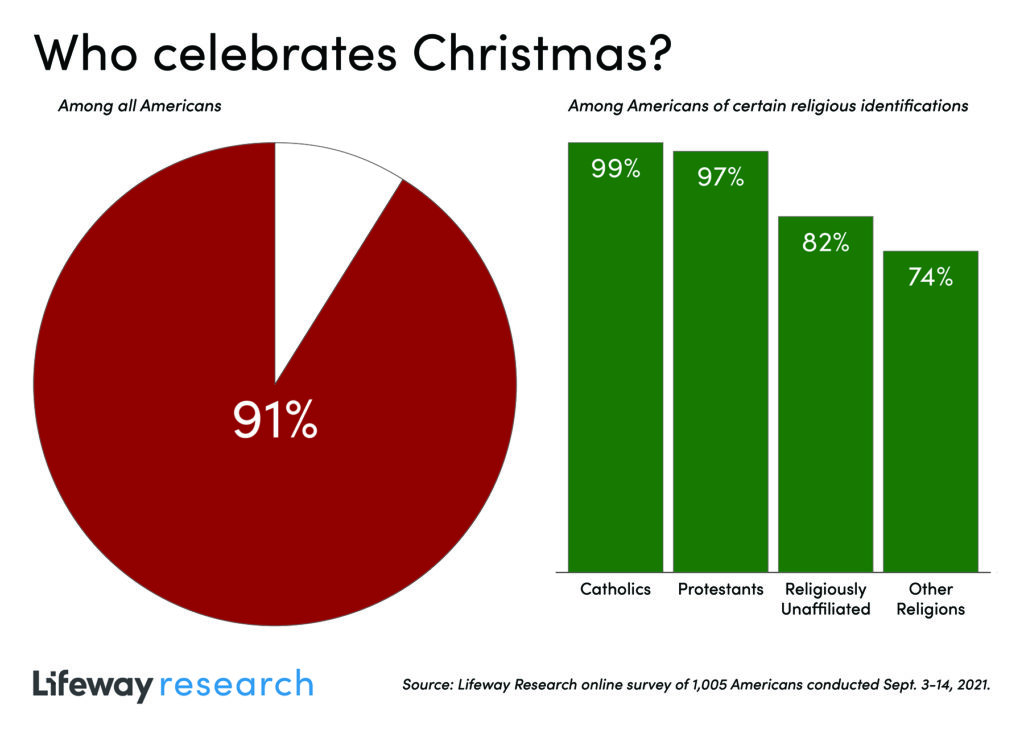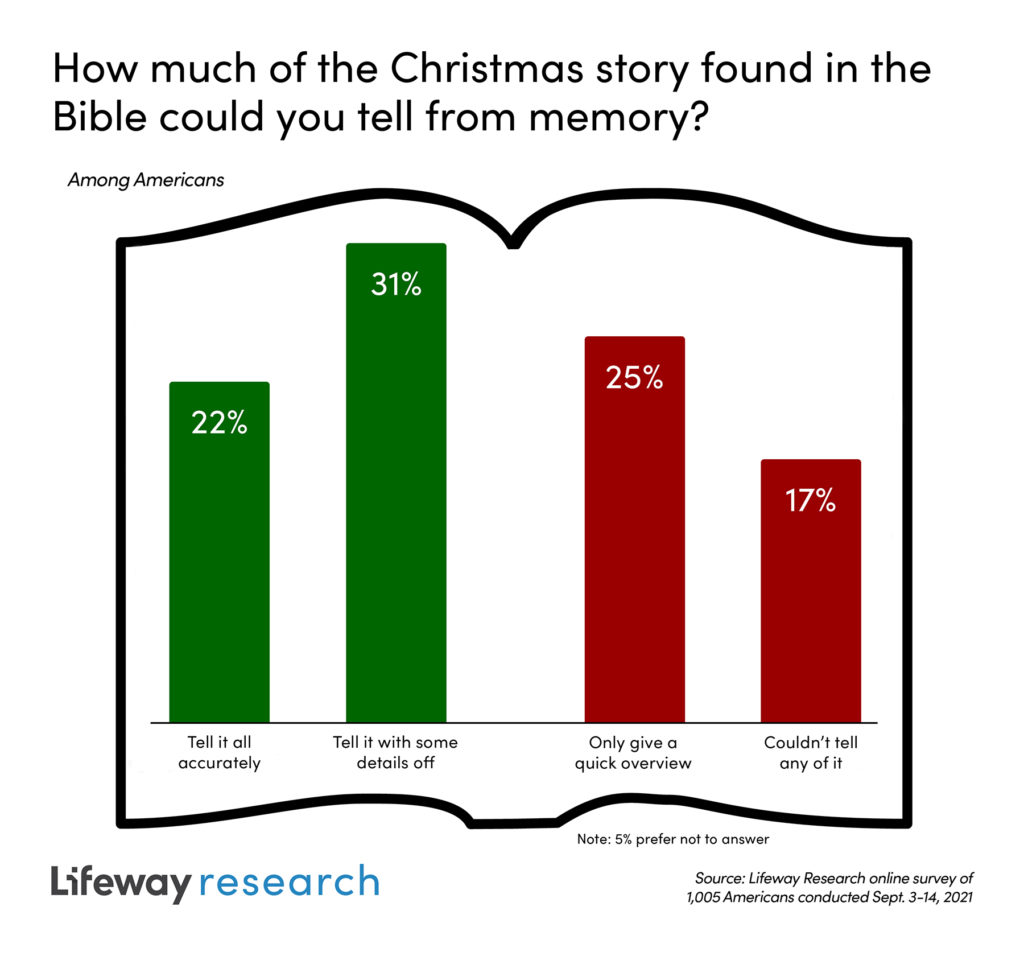(ZENIT News / Washington, 12.19.2024).- For most Americans, December 25 is a time for lights, gifts, and festive gatherings. Yet, behind the glittering decorations and cheerful music lies a surprising disconnect: while nearly all Americans celebrate Christmas, only a small fraction can recount the biblical story behind the holiday.
A Lifeway Research study reveals that 91% of Americans participate in Christmas festivities. This figure has held steady since 2010 and includes people from all religious and non-religious backgrounds. Catholics (99%) and Protestants (97%) lead the way in marking the day traditionally tied to Jesus’ birth. However, even 74% of individuals from non-Christian religions and 82% of the religiously unaffiliated join in celebrating the season.
“Christmas is a shared cultural moment in America,” said Scott McConnell, Lifeway Research’s executive director. “Even those unfamiliar with the story of Jesus’ birth find meaningful ways to participate.”

Christmas Without Christ?
While the majority of Americans celebrate Christmas, understanding of its biblical roots is lacking. According to a 2018 Lifeway study, only 22% of U.S. adults believe they could accurately and entirely retell the Nativity story from memory. Another 31% say they could recount it but might miss some details or get others wrong. About 25% could only provide a general summary, while 17% admit they couldn’t recount the story at all.
This gap between celebration and understanding has puzzled researchers, especially since 65% of Americans express a desire for Christmas to be more focused on Jesus.
“The biblical story of Jesus’ birth hasn’t changed in 2,000 years, but fewer than half of Americans think they could share it accurately,” McConnell observed. “Amid the many holiday traditions, perhaps the most vital one churches can offer is simply reading the Nativity story aloud.”
Faith, Education, and Memory
The ability to recount the biblical Christmas story varies widely across demographics. Evangelical Christians stand out, with 46% confident they could retell the story accurately—three times more than non-evangelicals (15%). Regular church attendance also plays a role. Among Christians who attend services at least four times a month, 45% say they could recall the story, compared to just 13% of those who attend less frequently.
Education adds another layer of complexity. Americans with college degrees (35%) or bachelor’s degrees (26%) are far more likely to feel confident in recounting the story than those with a high school diploma or less (18%).
Regional and Gender Trends
Regionally, Christmas spirit seems brightest in the Midwest, where 94% of residents celebrate the holiday. This is higher than the 88% observed in the Northeast, where traditions may face stiffer competition from diverse cultural expressions. Women (94%) are also more likely than men (89%) to participate in Christmas celebrations, highlighting potential differences in how the holiday is perceived and observed.
The Challenge of Keeping Christ in Christmas
The findings reflect a broader cultural trend: while Christmas remains a dominant holiday, its religious significance continues to blur for many Americans. Fictional holiday stories, from Rudolph to Santa Claus, grow more prominent each year, overshadowing the biblical narrative for many.
Church leaders see this as both a challenge and an opportunity. “Programs that bring the Nativity story to life—whether through live readings, plays, or sermons—are more important than ever,” McConnell said.

A Holiday of Paradoxes
Christmas in the U.S. stands at a crossroads: a universal celebration uniting people across beliefs, yet increasingly detached from its original meaning. Whether Americans reconnect with the spiritual core of the holiday remains to be seen, but one thing is clear—Christmas, in its many forms, is here to stay.
In a country where only one in five can recall the Nativity story but nearly everyone hangs lights and exchanges gifts, Christmas is as much about culture as it is about faith. Perhaps the beauty of the holiday lies in this paradox: a timeless story waiting to be rediscovered amid the twinkling lights and joyful songs.
Thank you for reading our content. If you would like to receive ZENIT’s daily e-mail news, you can subscribe for free through this link.



